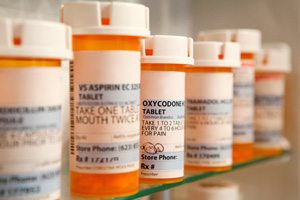 Your doctor prescribed you medicine on the side to help with regular stresses and anxiety. It helps you fully enjoy the cozy times with family and friends but sometimes leaves you feeling a little lightheaded or dizzy. You haven’t had anything to drink, and the only medication you have taken was prescribed by a professional, so you must be safe to drive, right?
Your doctor prescribed you medicine on the side to help with regular stresses and anxiety. It helps you fully enjoy the cozy times with family and friends but sometimes leaves you feeling a little lightheaded or dizzy. You haven’t had anything to drink, and the only medication you have taken was prescribed by a professional, so you must be safe to drive, right?
In the state of Texas, you may be pulled over for reckless driving and charged with a DWI, even if the medicine has been prescribed by a doctor. Taking your recommended dosage does not immediately prevent you from being intoxicated. If you have been charged with a DWI for driving under the influence of a prescription medicine, a professional criminal defense attorney can help you to understand your rights and guide you toward the best possible outcome for your case.
Will Driving Under the Influence of Prescribed Drugs Lead to a DWI?
The Lone Star state does not differentiate when it comes to what substance you are taking. If you are intoxicated behind the wheel of a car, you may be charged and arrested for driving while intoxicated.
Texas Penal Code 49.01 states the definition of intoxicated as being:
“Not having the normal use of mental or physical faculties by reason of the introduction of alcohol, a controlled substance, a drug, a dangerous drug, a combination of two or more of those substances, or any other substance into the body.”
In other words, even if you are taking the dosage provided by your medical doctor, you may still be at risk of exhibiting the same debilitating symptoms of intoxication. Dizziness, shortness of breath, and short-term memory loss can all affect your ability to operate a motor vehicle. Common prescription medicine that may inhibit your ability to safely drive include:
- Xanax
- Valium
- Zoloft
- Ambien
- Prozac
- Strong allergy medications such as Nasonex
It is essential to understand the possible side effects of your medication before taking it. Discuss how your prescribed dosage may affect your ability to drive or operate machinery with your doctor so you may prepare for the future.
What Are the Legal Repercussions of Being Charged with a DWI in Texas?
A DWI in Texas can mean extreme legal repercussions, even if it is your first time being charged. The penalties depend on various factors, including blood alcohol content and previous criminal history. Possible charges include the following:
Class B Misdemeanor
If you are a first-time offender with a BAC (Breath/Blood Alcohol Concentration) <.15, you likely will be charged with a Class B misdemeanor. If the BAC is .15 or higher, you will be charged with a Class A Misdemeanor. In Texas, a class B this may include up to 180 days in jail and up to a $2000 fine. A Class A may include up to 1 year in jail and up to a $4000 fine. Both can result in a license suspension and probation.
Class A Misdemeanor
If it is second charge, the charge is bumped up to a Class A misdemeanor, which means harsher repercussions. This includes a $4,000 fine, up to one year in jail, community service, license suspension for up to 180 days, and probation.
Third-Degree Felony
As a repeat offender of three or more DWIs, you are charged with a third-degree felony. This is a very serious charge and may result in 2-10 years in jail, up to $10,000 in fines, license suspension, and more.
Charged With a DWI in Texas? Contact Sophia Martinez Law Today
Being charged with DWI in Texas is a very serious and time-sensitive matter. Former Assistant District Attorney Sophia C. Martinez has extensive experience with DWI cases and will work alongside you to achieve the best possible outcome for your case. Her 25 years of diligent work come with no judgment.
To begin the process of building an effective defense for your case, contact Sophia Martinez Law today by calling (210) 226-3000 or filling out our contact form. Both English and Spanish-speaking options are available.
